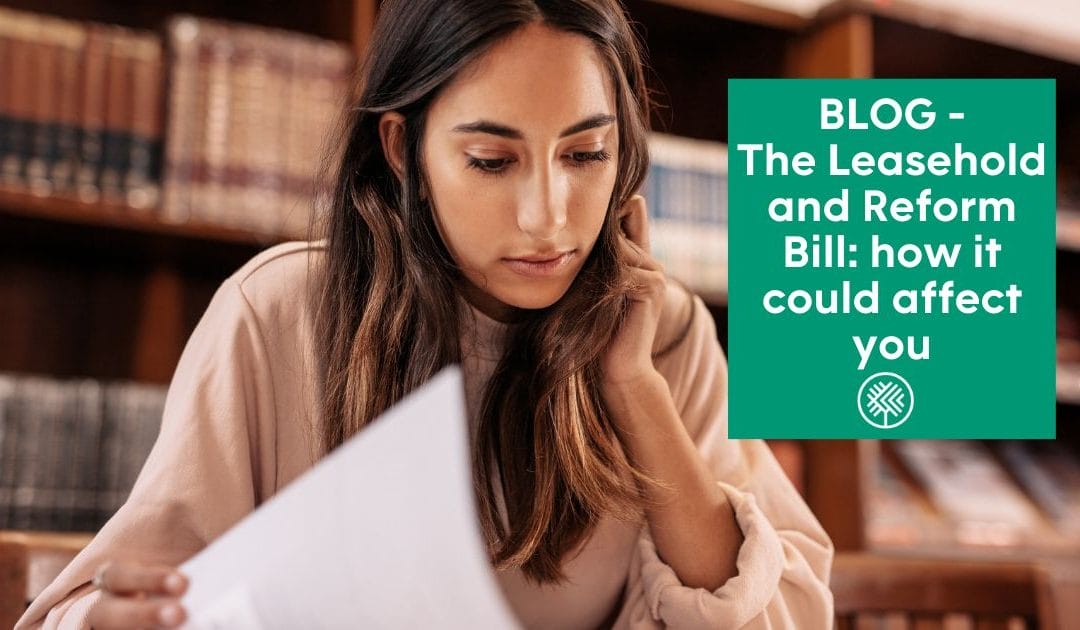The government is working to transform the leasehold system and, as outlined in its manifesto, ‘crack down on unfair practices’ in this area. This has certainly been on the cards for a while; the government first committed to leasehold reform back in 2017.
The plan is to give millions of owners greater powers, rights and protections over their homes thanks to the most sweeping changes to the leasehold system in a generation, according to the Department for Levelling Up.
Housing Secretary Michael Gove told journalists: “For too long, many have been denied the full benefits of home ownership through the unfair and outdated leasehold system. This is a landmark moment.”
The Leasehold and Freehold Reform Bill is part of the package of planned reforms, and is being fast-tracked through Parliament. Taking forward Law Commission recommendations, it aims to:
- Make it easier for leaseholders to extend their lease
- Lengthen standard lease extensions to 990 years for flats and houses at a nominal ground rent – previously extensions were capped at 90 years for flats and 50 for houses, however the Bill means these property types would now be treated identically.
- Expand the right to manage so leaseholders can purchase their freehold when they buy the property, eliminating a previous two-year waiting period. This extends to leaseholders in mixed-use buildings, expanding their eligibility to buy the freehold collectively.
- Provide greater transparency over service charges and more clarity on how these are worked out and how freeholders or their management companies communicate about these fees, with regular financial and non-financial information to be provided, from annual reports to insurance details, giving leaseholders more power to dispute charges where necessary.
- Building insurance costs reform – the Bill requires managing agents to charge transparent administration fees for building insurance, and ends the earning of commission for organising leaseholders’ building insurance.
- Ground rents consultation – a consultation was launched last November on how to cap ground rents in current leases; now the government wants to agree on the best way of incorporating this into the Bill. Options include freezing current levels, setting a peppercorn rate or capping as a percentage of property value.
- The Bill also aims to increase transparency and reasonableness around estate charges to freehold house owners, including giving the power to challenge estate charges at tribunals.
Having gone through its Second Reading last December, just three weeks after its introduction to the House of Commons, and the committee stage more recently, the Bill was due to proceed to report stage in late February, with its third reading following soon after. It could become law as early as this summer, with the Secretary of State to decide the exact implementation date.
Its rapid progress is in contrast to the Renters Reform Bill, which took five months to get from introduction to second reading, and underlines the strength of feeling surrounding the issues involved. The Bill will go through the House of Lords before receiving Royal Assent.
No complete leasehold ban
Some had predicted committee stage amendments would include an outright ban on leasehold. But the government chose not to do this. The Bill could still be used to abolish leasehold houses. But there has been limited progress towards a viable alternative, such as ‘commonhold’, under which people own the freehold to their dwellings, but the remainder of an estate or building is owned or managed communally.
Something else which is missing, potentially making things less certain for freeholders as well as leaseholders, is the rates which will be used to work out the sum a leaseholder pays when extending or buying a lease. The government is due to confirm this, and it’s set to be included in the secondary legislation. The government hopes to lessen the potential for disagreements and make lease extensions quicker by doing this.
However it’s a tricky balancing act to get the rates right. Set them too low and leaseholders could face greater costs than before; too high and freeholders could lose out as wealth is transferred.
Housing minister Lee Rowley has announced plans to consult people on their views, which, while welcome, could mean that this element off the reforms isn’t likely to be implemented any time soon.
Building safety
Amendments which would have brought non-qualifying leaseholders within the Building Safety Act’s scope in terms of cost protections have not been supported. So landlords owning non-qualifying leases will still be liable for the full expense of any building safety defects repairs. (However, an amendment could be reconsidered at a later stage.)
Qualifying leaseholders enjoy legal protection from paying for the removal of dangerous cladding, plus caps on other costs for safety work, in proportion to the flat’s value. Non-qualifying leaseholders don’t have this protection, although bills may come down if the structure qualifies for government support, or if a developers agrees to be responsible for safety repairs.
Oakfield says
At Oakfield Estate Agents, we’ve been following the Bill’s progress with interest as makes its way through Parliament, and will continue to keep an eye on developments. We’re aware that some detail is still missing, but are confident that this Bill could make a significant difference to the lives of leaseholders. So we’re looking forward to it being enacted.
Remember, we work with landlords and tenants across our areas of East Sussex, including Bexhill-on-Sea, Eastbourne and Hastings. Get in touch to learn more about what we could do for you, and if you have any queries on the Leasehold and Reform Bill, which we’ll gladly discuss with you. Check out our contact details here.

